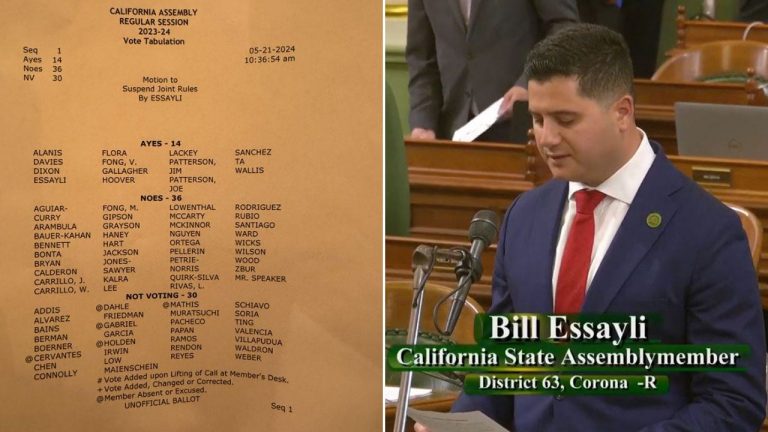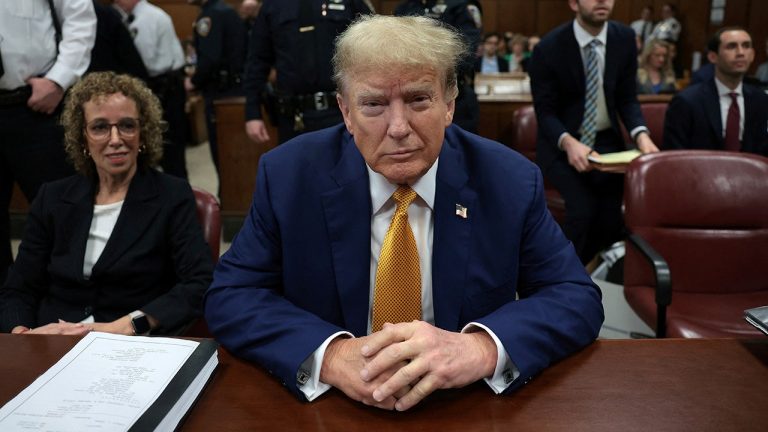Republicans unite to stop long-standing gun law that they believe violates the Second Amendment.
The RIFLE Act: Senate Republicans Introduce Bill to Abolish Transfer Taxes on Firearms
Sen. Tom Cotton, R-Ark., and other Senate Republicans recently introduced legislation that would abolish transfer taxes on firearms regulated under the National Firearms Act (NFA).
The bill, called the Repealing Illegal Freedom and Liberty Excises (RIFLE) Act, was announced on Wednesday. According to a press statement released by Cotton, the law “would remove a burdensome tax imposed on firearms regulated under the National Firearms Act.”
The NFA has been taxing the transfers of short-barreled shotguns and rifles and fully automatic firearms since 1934, with a tax amount of $200, which is equivalent to nearly $4,700 in 2024 dollars.
Specifically, the bill seeks to eliminate Section 5811 of the Internal Revenue Code of 1986, effectively repealing the transfer tax for all firearms regulated by the NFA.
Support for the Legislation
The legislation is supported by other senators, including Sens. Marsha Blackburn, R-Tenn.; John Cornyn, R-Texas; and Markwayne Mullin, R-Okla. Companion legislation in the House of Representatives was introduced by Sens. Marco Rubio, R-Fla.; Rick Scott, R-Fla.; and John Barrasso, R-Wyo.; and Iowa Rep. Ashley Hinson.
In a statement, Cotton emphasized that the current firearm transfer taxes are “unnecessary” and impose financial barriers on law-abiding Americans exercising their Second Amendment rights.
“Law-abiding Americans should not be subject to unnecessary taxes and restrictions preventing them from exercising their Second Amendment rights,” Cotton said. “Passed in 1934, the National Firearms Act needs to be amended. Our legislation will remove the red tape that places an undue financial burden on would-be gun owners.”
Opposition to the NFA Transfer Tax
Constitutional scholars have criticized the NFA transfer tax, arguing that it undermines the constitutional basis of the NFA itself. Critics point out that the notion of criminalizing the possession of certain firearms would have been met with skepticism by the Founding Fathers.
“The RIFLE Act does not modify the current checks and registration; it solely removes the federally mandated financial burden on law-abiding gun owners,” the press release states.
Implications of the RIFLE Act
The introduction of the RIFLE Act comes at a time when gun rights and regulations are hotly debated across the country. While proponents of the bill argue that it upholds Second Amendment rights by removing financial barriers, opponents express concerns about the potential impact on public safety.
“The federal government should not be placing financial barriers on the inalienable rights of Americans. This unconstitutional tax on certain firearm purchases is a direct violation of the Second Amendment and must be repealed,” Hinson said. “As the Biden Administration and Democrats push proposals that unfairly target law-abiding gun owners, I will continue to stand up for Iowans’ right to keep and bear arms.”
Conclusion
In conclusion, the RIFLE Act represents a significant development in the ongoing debate over gun regulations and Second Amendment rights. Supporters believe that abolishing the transfer taxes on NFA-regulated firearms will alleviate financial burdens on gun owners, while critics raise concerns about potential implications for public safety.
As the bill moves through the legislative process, it is likely to generate further discussion and debate among lawmakers and the public alike. Stay tuned for updates on the progress of the RIFLE Act and its potential impact on gun laws in the United States.








